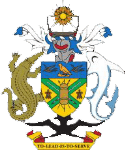There has been an increase in greenhouse gases released into the atmosphere over the last 100 years because of actions by humans.
There are more cars, more factories and more trees being cut down. This is resulting in climate change and both land and sea surface temperatures are expected to be hotter in the future. The process of reducing the greenhouse gases in the atmosphere is called climate change mitigation.
Solomon Islands contributes minimal green-house gases into the atmosphere. However, being a Least Developed Country (LDC) as well as an island nation, it is quite exposed to the impacts and associated risks brought on by climate change.
Due to this, the Solomon Islands Government is encouraging countries with higher emissions to agree to a fair, ambitious and legally binding agreement to reduce green-house gases at the climate change negotiations as part of the United Nations Framework Convention on Climate Change (UNFCCC).
At the same time, the Solomon Islands Government is initiating measures to enhance the country’s energy efficiency and decrease Solomon Islands reliance on fossil fuels through solar and other renewable energy sources.
In the forestry sector, Solomon Islands is participating in the United Nations REDD program and is implementing a national REDD+ program through the Ministries of Forestry and Research (MFR) and Environment (MECDM).
REDD stands for Reducing Emissions from Deforestation and forest Degradation. The + (REDD+) goes a step further by promoting the importance of sustainable forest management (SFM), enhancement of caron stock and conversion of carbon stock in developing countries. It is an effort to create financial value for carbon stored in forests, thus turning the stored carbon into a tradable commodity under international emissions trading schemes.
The idea behind this being that the forests become more valuable as they and protected and enhanced, creating an incentive for sustainable forest management which will have a spill over effect of protecting and enhancing ecosystems, biodiversities and reducing soil degradation as well.
In Solomon Islands, the Ministry of Environment (MECDM) is the program's national focal point while the Ministry of Forestry and Research (MFR) is the program's key implementing Government Ministry.

